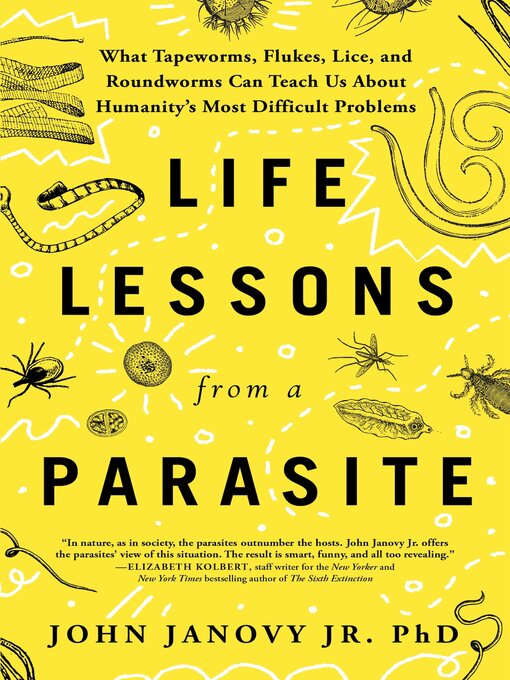"In nature, as in society, the parasites outnumber the hosts. John Janovy Jr. offers the parasites' view of this situation. The result is smart, funny, and all too revealing." – Elizabeth Kolbert, staff writer for The New Yorker and New York Times bestselling author of The Sixth Extinction
The answers to life's biggest questions can be found by looking at the little things...
Though you may not be able to see them with the naked eye, parasites—minuscule life forms that live inside other organisms—inhabit our everyday lives. From headlice to bird droppings, litterboxes to unfiltered water, you have brushed up against the most common way of life on our planet.
In this unique book, John Janovy Jr., one of the world's preeminent experts on parasites, reveals what humans can learn from the most reviled yet misunderstood animals on Earth: lice, tapeworms, flukes, and maggots that can eat a lizard from the inside, and how these lessons help us negotiate our own complicated world. Whether we're learning to adapt to adverse conditions, accept our own limitations, or process new information in an ever-changing landscape—we can be sure a parasite did it first.
At once peculiar and profound, Life Lessons from a Parasite makes a case for using knowledge of the natural world, with all its wonderful mysteries and quirks, to tackle our worst problems.



